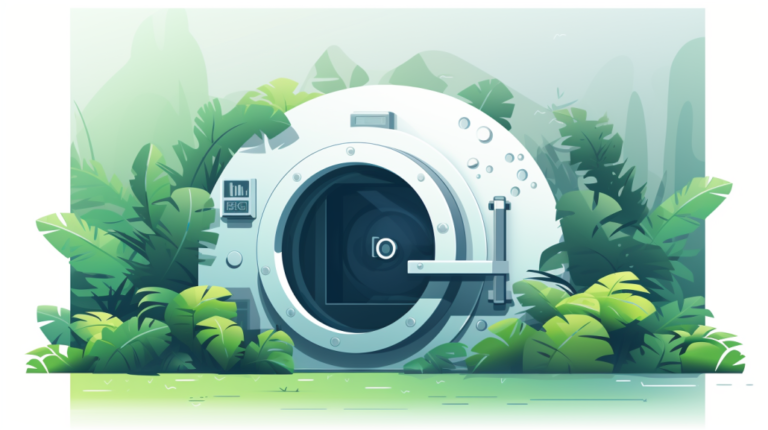How To Handle Banking Disputes

Key Takeaways
- Key Takeaway 1: A banking dispute is when you have a problem with your bank. It could be about missing money or if the bank didn’t do what they should.
- Key Takeaway 2: Banks use steps to solve disputes. They look at the claim, gather facts, and make a choice based on this data.
- Key Takeaway 3: When there are banks problems, act quick! Have all your facts ready for them to review to speed up solving it.
- Key Takeaway 4: Keep records of talks with the bank. This helps keep details clear and reduces confusion later on.
- Key Takeaway 5: For sellers, keeping good records can help fix issues quickly. Respond fast to customer questions during a bank problem.
Understanding Banking Disputes
To better manage a banking dispute, it’s first crucial to understand what it entails; typically arising from disagreements over transactions, charges, or services between a bank and its customers, common types of disputes include unauthorized transactions, unexpected charges or billing errors.Definition and common types
A banking dispute is when you have a problem with your bank. It could be about money that’s missing, or if your bank didn’t do what they said they would. There are many types of banking disputes. We see complaints about fees and charges a lot. Some people say the bank took out more money than it should have. Others say they were not told about all the costs when they signed up for their account or credit card. Sometimes, people think that someone else used their card without them knowing, so they file a dispute to get back the lost money.How Banks Investigate Disputes
 Banks take a systematic approach to investigate disputes, encompassing receiving the dispute claim, gathering and reviewing pertinent information, making an informed decision, and communicating that decision effectively. Stay tuned to learn more about the intriguing process behind banking dispute investigations!
Banks take a systematic approach to investigate disputes, encompassing receiving the dispute claim, gathering and reviewing pertinent information, making an informed decision, and communicating that decision effectively. Stay tuned to learn more about the intriguing process behind banking dispute investigations!Receiving a dispute claim
Getting a dispute claim is the start of an investigation. It happens when you, a customer, tell your bank about a problem with your account or card. This could be an error or a fraud charge you didn’t make or allow. Banks need to listen and act fast when they get these claims because it’s their job to keep your money safe. So, don’t fear if this happens to you. Just reach out to them quickly so they can start fixing it right away!Gathering Information
Collecting facts is a key part of the bank’s dispute process. Here are the steps banks take to gather info:- They first look at the customer’s claim.
- Next, they dive into transaction details. This includes the amount and date.
- Banks also look at any papers tied to the deal.
- Sometimes, they talk to other parties. This can be the store owner or payment guys.
- The right info matters a lot here for success.
- Banks have many ways to get data for this work, like their own records or video clips.
Reviewing the Information
In this stage, fraud investigators take a keen look at the facts. They use internal systems to access more data. They also check other sources like surveillance footage. The point is to find any tricks or strange things in the case. This may lead them to the truth about a problem or help stop bad actions from happening again.Making a Decision
After a bank gets all the facts, it’s time for a move. This is where they pick out what to do next. Their team looks at all the data collected during the investigation process. The goal is to find any fraud or odd things that don’t fit right. The work of finding out if something bad happened falls on skilled fraud investigators. These people take their time looking at every detail in the data. They check over what was found with other info they have and use special tools to look for patterns or weird things that stand out. Then, they decide on what action needs to be taken next based on their findings from the dispute claim. It’s important that banks make good choices at this stage of resolving banking disputes because it affects how everyone sees them – e-commerce store owners, merchants and customers alike! So, having clear facts and making smart choices matters a lot!Communicating the Decision
The bank lets the customer know what they have found. They might send a letter or an email. This tells them if there is a mistake or not. It also talks about next steps if needed. This part is critical in the dispute resolution process because it puts everyone on the same page.Steps to Handle a Bank Dispute
 Taking the right steps when a bank dispute arises can help you navigate the process effectively. Preparation is key: gather specific information about your transaction, act quickly to reach out to your bank and communicate clearly. Keep clear notes of every interaction related to the dispute for future reference. Read on as we delve deep into each step, equipping you with necessary knowledge to handle banking disputes like a pro.
Taking the right steps when a bank dispute arises can help you navigate the process effectively. Preparation is key: gather specific information about your transaction, act quickly to reach out to your bank and communicate clearly. Keep clear notes of every interaction related to the dispute for future reference. Read on as we delve deep into each step, equipping you with necessary knowledge to handle banking disputes like a pro.Be Prepared With Specific Information
It’s key to gather all the facts before you raise a dispute claim. These may include bank transactions and paperwork related to the issue. Facts like date, time, and amount of money involved are critical! Don’t forget details about who was part of it. This could be a store or person you dealt with. Having all this ready will speed up the dispute resolution process. Banks will find it easier to act when they have clear data in front of them.Act Quickly
Don’t wait to take action if there is a banking problem. Every single day matters, so it’s crucial to act fast. There is a law that gives you 60 days to tell the bank about your problem. It starts counting from the day you see the error. In case of fraud or theft, get in touch with your bank at once. This quick move can stop more illegal charges and keep your rights safe.Contact the Bank
Call your bank right away if you see an error. This is your first step in solving a bank dispute. You can send them an email or even go to the nearest branch location. Be sure to say what is wrong and ask for their help. Banks are there to look into problems like this. If someone used your card without asking, tell the bank at once so they can stop more bad charges from happening.Be Direct and Clear
Talk straight to the bank. Tell them what went wrong with your money. Use easy words that everyone knows. Don’t make it hard for them to know what you mean. You must tell the bank about the problem right away. Give them all the details they need to fix it for you.Take Notes
It’s smart to keep a record of all talks with the bank. This means writing down who you talk to, what they say, and when. This could be very useful later on. It also makes sure that there is no confusion about past talks. So always take notes during your conversations with the bank staff about the problem at hand.Role of Merchants in Dispute Resolution
 As a merchant, your role in dispute resolution is critical: keeping accurate records, responding promptly to customer inquiries, ensuring employees understand the process and communicating clearly with banks can significantly sway the outcome. Want to learn more about your key tasks? Keep on reading!
As a merchant, your role in dispute resolution is critical: keeping accurate records, responding promptly to customer inquiries, ensuring employees understand the process and communicating clearly with banks can significantly sway the outcome. Want to learn more about your key tasks? Keep on reading!Keeping Good Records
Good record-keeping is a must for merchants. This helps when you need to solve banking disputes. You should keep all the data about your sales or talks with buyers. Receipts, bills and messages can be useful later on. These items can help show the bank what really happened during a sale. Also, they will help you see if there are any issues happening over and over again. By spotting these patterns early, you can stop more problems from happening in the future.Responding Promptly to Customer Inquiries
In a bank dispute, quick answers to customer questions are important. It shows the customer that the bank is working on their problem. As soon as a customer asks about their dispute, the bank should send an answer. The answer does not have to solve everything right away. But it must tell the customer what steps are being taken for their issue. This helps in gaining trust and keeps customers happy during a stressful time.Training Employees on the Dispute Resolution Process
It’s key for staff to learn about the dispute process. This helps them tackle issues in a good way. Banks must train their people on this topic. They learn how to talk to customers and others involved in a dispute case. The training covers things like finding out about the issue, getting all needed facts, and making choices. With good training, bank staff can handle disputes well and fast.Communicating Clearly with the Bank
Clear talk is key to fix a bank issue. You need to tell the bank what the problem is and why it should not be there. Let them know all they need about this matter. This helps them understand your side of things better. Sometimes you have to write down your dispute for the bank. Banks often like this more than just talking on the phone or in person. Make sure every word counts! It must be clear and direct for best results. Getting in touch with a store can help as well if they charged too much money by mistake. Fixing issues directly with the seller might solve everything faster than going through the bank.What Happens After the Bank Dispute Is Resolved?
 The bank gives the final words after careful study. They tell you in less than 10 days. You may get some money back while they look into it more. This is called a ‘temporary credit‘. In most cases, banks finish looking at everything within 45 to 90 days. Once done, they let you know for sure if there is an issue or not. Keep a close eye on your account after this to make sure no other bad things happen again. If needed, write a letter about the dispute and keep an extra copy for yourself.
The bank gives the final words after careful study. They tell you in less than 10 days. You may get some money back while they look into it more. This is called a ‘temporary credit‘. In most cases, banks finish looking at everything within 45 to 90 days. Once done, they let you know for sure if there is an issue or not. Keep a close eye on your account after this to make sure no other bad things happen again. If needed, write a letter about the dispute and keep an extra copy for yourself.Importance of Minimizing Credit Card Dispute Fraud
Taking steps to minimize credit card dispute fraud is key in protecting your business and maintaining customer trust. Uncover more about definitions, consequences, and preventive measures of this type of fraud in our blog post. Stay informed; read on!Definition of credit card dispute fraud
Credit card dispute fraud happens when wrong or not allowed charges show up on a credit card. It’s a kind of money trick that leads to false charges on your card. This can take place if someone gets hold of another person’s credit card details without them knowing. These people then use this data they stole for their own good, causing harm to the true owner of the card.Consequences and prevention
Credit card dispute fraud hurts everyone. Banks lose money. This might lead to higher fees for us all. If you are not careful, it could hurt your credit score too. It’s important to act fast if you think there is fraud on your account. You can protect yourself by checking bank statements often and telling the bank when something seems wrong right away.FAQs
In the course of handling banking disputes, consumers often have various questions. Here are some frequently asked questions (FAQs) that can help you understand the process better:| Question | Answer |
|---|---|
| What is a banking dispute? | A banking dispute is when you, as a bank customer, disagree with a transaction or charge on your account and formally request the bank to investigate. |
| What should I do when I notice an unauthorized transaction? | When you notice an unauthorized transaction, contact your bank as soon as possible to report it. The sooner you act, the better your chances of resolving the issue. |
| What kind of information do I need to provide for a bank dispute? | You should provide all relevant information, including transaction details (amount, date), any relevant documentation, and a clear explanation of why you are disputing the transaction. |
| What is the role of the bank in a dispute? | The bank investigates the dispute. After receiving your claim, they gather information about the transaction, review the information, make a decision, and communicate it to you. |
| What happens after my dispute is resolved? | Once the dispute is resolved, the bank will communicate to you the outcome. If the dispute was in your favor, you may get a refund of the disputed transaction. If not, you’ll have to bear the cost. |
| Can I prevent credit card dispute fraud? | Yes, you can minimize credit card dispute fraud by being vigilant about your account activities, promptly reporting any suspicious transactions, and practicing safe financial habits like regularly changing your passwords. |
Are Sustainable Financial Options Available for Handling Banking Disputes?
Sustainable financial options, such as green banking options, are emerging for handling banking disputes. These options promote eco-friendly practices by aligning with environmental principles. By embracing digital means to resolve disputes, reducing paperwork, and prioritizing ethical investments, green banking options help individuals and businesses resolve conflicts in a financially and environmentally responsible manner.
Conclusion
 Knowing how to handle bank disputes is key. Doing so can save time and stress. Always act fast, but be clear and direct in all your talk with the bank. Above all, keep good records of everything, as this could help you win your dispute.
Knowing how to handle bank disputes is key. Doing so can save time and stress. Always act fast, but be clear and direct in all your talk with the bank. Above all, keep good records of everything, as this could help you win your dispute.





